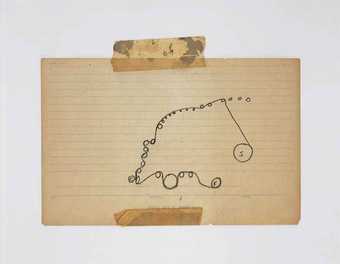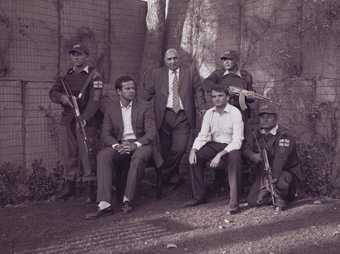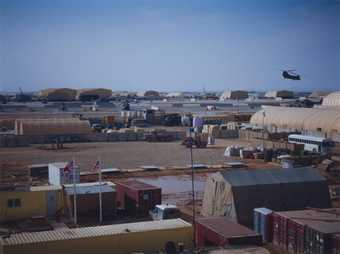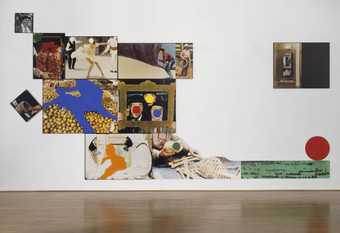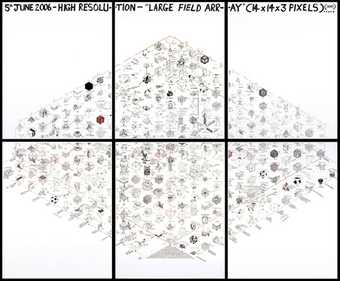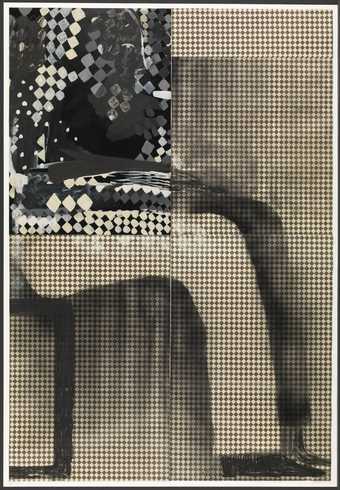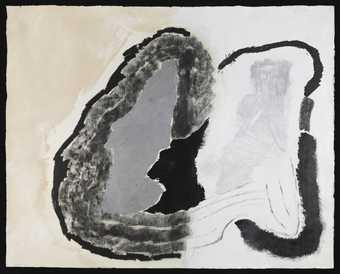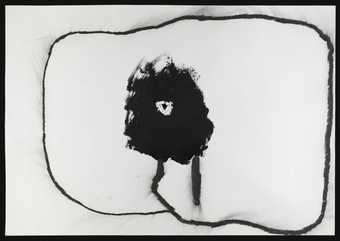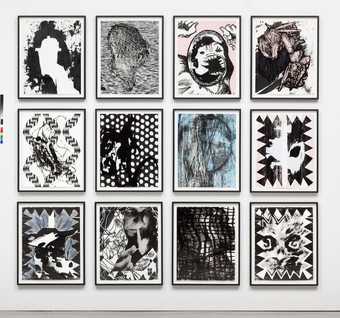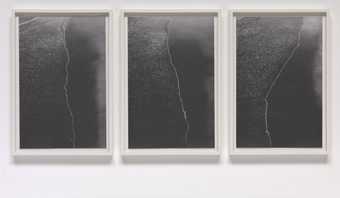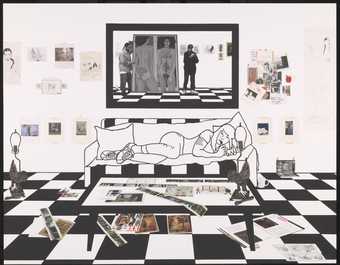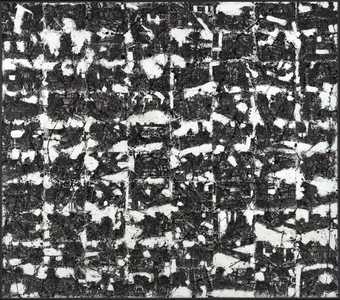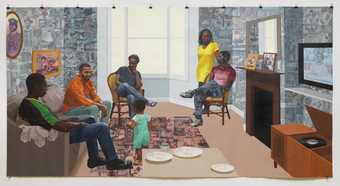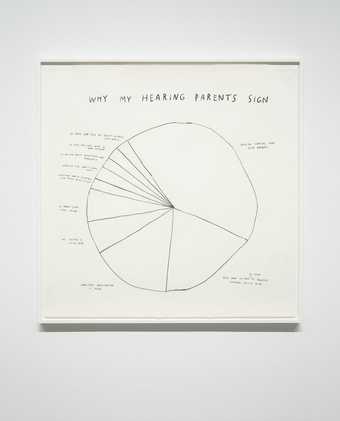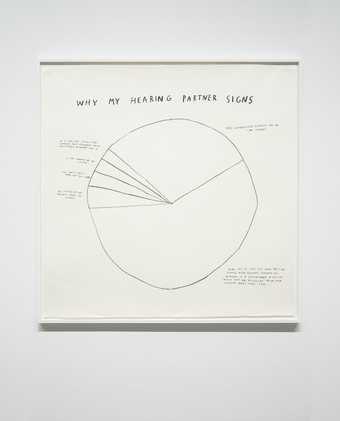
Not on display
- Artist
- Njideka Akunyili Crosby born 1983
- Medium
- 2 works on paper, charcoal, acrylic paint, graphite and transfer print
- Dimensions
- Support: 2120 × 2123 mm
support: 2120 × 2129 mm - Collection
- Tate
- Acquisition
- Purchased with funds provided by the Acquisitions Fund for African Art supported by Guaranty Trust Bank Plc 2014
- Reference
- T14021
Summary
Predecessors 2013 is a two-part work by the Nigerian-born artist Njideka Akunyili Crosby. It is executed in acrylic, charcoal, pencil and acetone-transferred prints on two separate sheets of paper that are displayed unframed and unmounted. The left-hand sheet features a single female figure wearing a pink dress, seated in a domestic living-room environment. The work shows the contrast between a modern ‘off-the-peg’ style interior and the iconographic ‘lattice’ – a geometric structure of cement that was used as a ventilation system, as well as a decorative element – typical of the houses in late 1970s Lagos when the artist was growing up. The female subject at the centre of the composition has consistently appeared in a number of Akunyili Crosby’s previous works. She is the artist’s alter ego, a modern African woman who embodies the nature of the African cosmopolitan lifestyle through her costume, style and mannerisms. She is an ‘Afropolitan’, representative of a new generation of African who exists between multiple geographies and cultures, living a trans-cultural and trans-national life. The concept of Afropolitan was popularised by writer Achille Mbembe (born 1957) in the essay ‘Afropolitanism’, in which he aimed to propose a possible new answer to the question of African identity (in Africa Remix: Contemporary Art of a Continent, exhibition catalogue, Hayward Gallery, London 2005, pp.26–9).
The right sheet of Predecessors presents a kitchen. On display are several utensils and kitchen tools, which belong to different periods of Nigeria’s history. Completing the imagery in both parts of the work are family photographs and personal memorabilia, mixed with cut-outs from popular magazines and newspapers. Akunyili Crosby uses photographs, Xerox copies and acetone-transferred prints to create a multi-layered surface in her works, in which disparate materials and motifs are combined to produce a cohesive representational scene. She has commented about the range of references in this particular work that:
this technique of integrating disparate materials and images undergirds the significance of the work by creating a visual metaphor for the multiple sources of influence on people’s experiences within a space where numerous cultures interact – the postcolonial, the immigrant, and other scenarios. The images chosen for this piece deal with changes over two generations of Nigerians, 1960s and 2010s, as seen through the lens of pop cultural icons. So, writer Chinua Achebe is paired with novelist Chimamanda Ngozi Adichie, singer Onyeka Onwenu with hip-hop icon Nneka, and former government Nigerian Airways with corporate Arik Air.
(Akunyili Crosby, in correspondence with Tate curator Elvira Dyangani Ose, September 2013.)
Predecessors exemplifies Akunyili Crosby’s interest in storytelling. The post-colonial writing of Nigerian authors such as Chinua Achebe and Chimamanda Ngozi Adichie, as well as being visual references, here provide the conceptual framework within which the artist reinvents the grammar of Western portraiture. Deeply rooted in personal experience, her practice reflects the internal tensions between the artist’s deep love for Nigeria and her strong appreciation of Western culture, while at the same time offering up a larger, collective narrative.
Further reading
Meleko Mokgosi and Xaviera Simmons, ‘In the Studio with the 2011–12 Artists in Residence’, Studio Magazine, Summer/Fall 2012.
Ara H. Merjian, ‘Njideka Akunyili’, in Matt Price, Vitamin D2: New Perspectives in Drawing, London and New York 2013.
Elvira Dyangani Ose
September 2013
Does this text contain inaccurate information or language that you feel we should improve or change? We would like to hear from you.
You might like
-
Simon Norfolk The seemingly endless number of helicopter pads and hangars at Camp Bastion.
2011 -
John Baldessari Hope (Blue) Supported by a Bed of Oranges (Life): Amid a Context of Allusions
1991 -
Phoebe Unwin Man with Heavy Limbs
2009 -
Trevor Bell Folded Strata
1991 -
Trevor Bell Looking
1997 -
Charline von Heyl Untitled
2011 -
Frances Stark Behold Man!
2013 -
John Virtue Landscape No. 109
1990–91 -
Njideka Akunyili Crosby Remain, Thriving
2018 -
Christine Sun Kim Why My Hearing Parents Sign
2019 -
Christine Sun Kim Why My Hearing Partner Signs
2019

